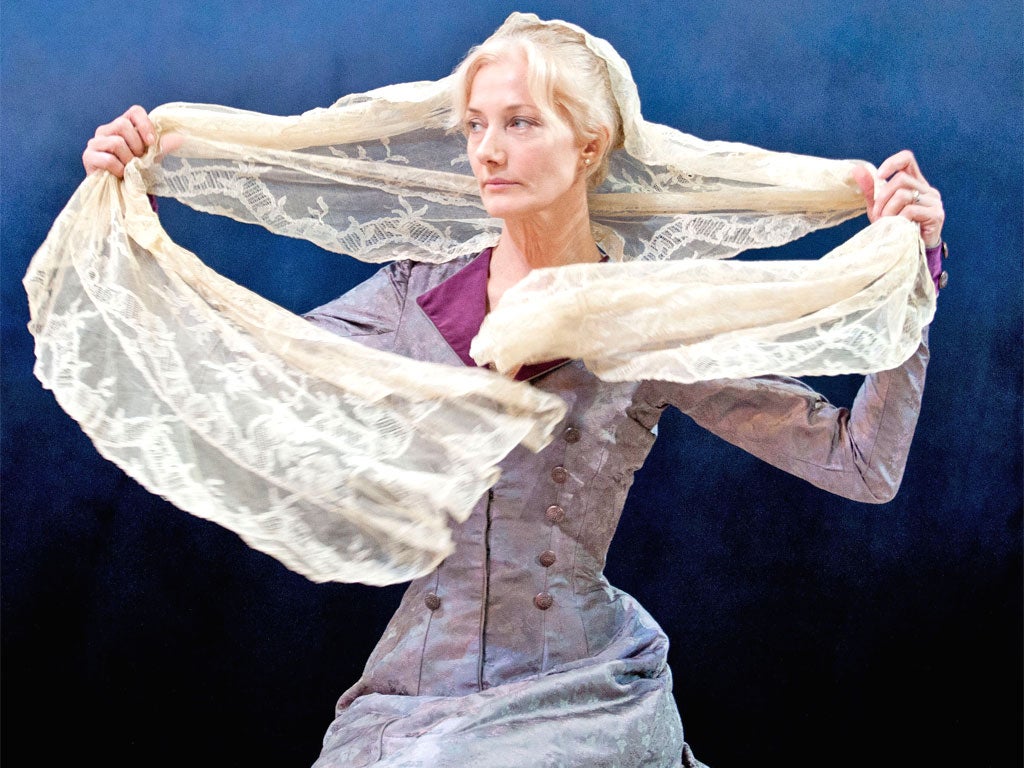First Night: The Lady from the Sea, Rose Theatre, Kingston-upon-Thames
Richardson dazzles on her return to the London stage

This is the sixth Henrik Ibsen play the Rose Theatre's artistic director Stephen Unwin has taken on. His self-diagnosed "Ibsenitis" has taken such a hold that for this project he wrote a brand new translation of The Lady from the Sea himself. This is its first airing. The script is spare, precise and modern. It retains Ibsen's trick of repeating phrases, like a refrain, which lends it an undulating quality. The dialogue reflects the sun-bleached Norwegian fjord on which the play is set: stunning to look at, dramatic and engaging. But the detail of this complex tale is, occasionally, washed out.
Joely Richardson is excellent as Ellida, the semi-unhinged wife to Doctor Wangel (an endearing Malcolm Storry). This is Richardson's first role in a British theatre in a decade – a pressure no doubt compounded because her mother, Vanessa Redgrave, and her late sister, Natasha Richardson, both played the part of Ellida to great acclaim. But if she feels the weight of those comparisons, Richardson doesn't show it. She is a picture of statuesque fragility. Her hands wring together like Lady Macbeth's, her eyes wildly seeking, voice quavering. A woman on the edge.
Unwin brilliantly unpicks the tangle of 19th-century family relationships. The crux is dependency and responsibility versus freedom. This is true of all the relationships in the drama, but it is most particularly between husband and wife that protection and imprisonment are dissected. Wangel is a good, kind man who has rescued Ellida by marrying her, but in doing so he has taken her free will. Ellida's insanity is her recognition of this. Her hysteria is a need for the open sea, a disgust of the "sick" waters of the fjords and a "terrifying attraction" to a sailor to whom she was once engaged. The daughter of a lighthouse master, named after a ship, Ellida is like the little mermaid in Hans Christian Andersen: it all seems lost, and that she must drown.
But surprisingly for Ibsen, it is not all doom and gloom. Ellida's stepdaughters, the put-upon Bolette (Madeleine Worrall) and her caustically charming younger sister, Hilde (Alexandra Moen), provide plenty of lightness to the shade, and there are pockets of excellent intensity. There is even a happy ending. But diluted by long scene changes, the momentum sometimes drops.
Join our commenting forum
Join thought-provoking conversations, follow other Independent readers and see their replies
Comments
Bookmark popover
Removed from bookmarks